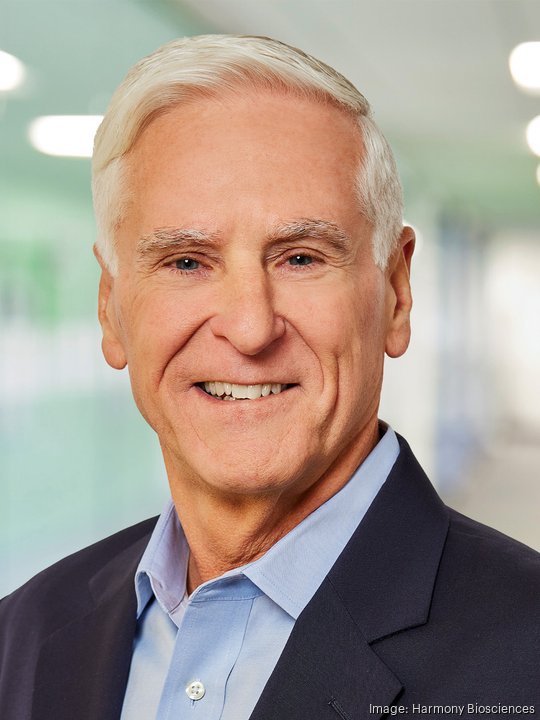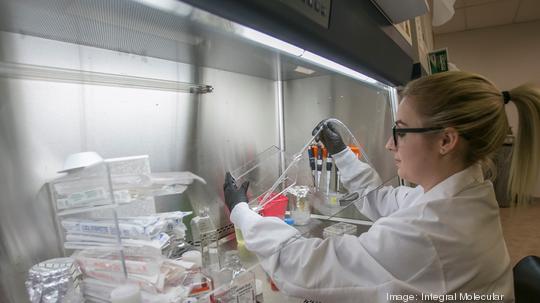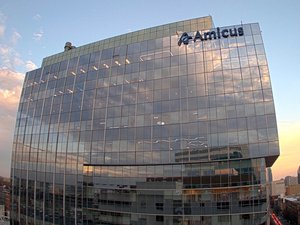
This week's Lab Notes has items on a finalized merger involving two local life sciences companies, new funding for both a biotech firm and a medical device company in the city, and more.
Here's the roundup:
Harmony Biosciences and Zynerba
The two life sciences companies completed their previously announced merger in a deal valued at up to $200 million.
Under the terms of the agreement, Harmony Biosciences (NASDAQ: HRMY) of Plymouth Meeting acquired the outstanding shares of Devon-based Zynerba for a purchase price of $1.10 per share in cash — which amounts to $60 million in the aggregate.
Zynerba shareholders also received one nontradeable contingent value right, or CVR, per share. The CVR represents the right to receive potential additional payments of up to $140 million, or about $2.54 in additional cash per share, subject to the achievement of certain clinical, regulatory and sales milestones tied to Zynerba's lead drug candidate Zygel.
Zygel is a pharmaceutically produced transdermal cannabinoid therapy being developed for orphan neuropsychiatric disorders, starting with Fragile X syndrome. Fragile X syndrome is a rare genetic disorder caused by a genetic mutation that results in intellectual disabilities and behavioral challenges. The condition afflicts about 80,000 people in the United States. Cannabinoids are compounds found in cannabis plants. Zynerba is also studying Zygel as a potential treatment for patients with 22q deletion syndrome. The condition is a rare chromosomal disorder that results in poor development of several body systems, which can cause heart, immune, learning, speech, and/or behavior difficulties.
“Zygel is a significant market opportunity that advances our long-term growth strategy of developing a diversified portfolio beyond sleep/wake therapies,” said Jeff Dayno, CEO of Harmony Biosciences. “This acquisition expands our pipeline with a product candidate in our area of expertise that could address high unmet medical needs for people living with rare neuropsychiatric disorders.”

Harmony Biosciences markets the narcolepsy drug Wakix, which generated sales of more than $253 million during the first half of this year. Wakix sales topped $437.9 million in 2022.
Shares of Harmony Biosciences opened down more than 20% Friday morning after the Plymouth Meeting biopharmaceutical company announced disappointing results from late-stage testing of pitolisant, the active ingredient in Wakix, in another sleep disorder known as idiopathic hypersomnia.
Harmony did say pitolisant demonstrated a "clinically meaningful benefit" in patients completing the initial open label phase. The company is conducting further data analysis to determine its next steps.
Integral Molecular
The Philadelphia biotechnology company received just under $900,000 in a National Institutes of Health grant to support the company's antibody discovery efforts.
Integral Molecular plans to use the funds to identify antibodies against many of the 230 G protein–coupled receptors, or GPCRs, and ion channels identified by the NIH that have proven to be difficult therapeutics targets.

GPCRs are a large family of membrane proteins that mediate most cellular responses to hormones and neurotransmitters.
Integral Molecular specializes in creating technologies and therapeutic antibodies for under-exploited membrane protein targets.
"With our decades-long experience studying complex proteins, and an antibody success rate exceeding 95%, we are confident in delivering the desired molecules," said Ross Chambers, vice president of antibody discovery at Integral Molecular.
RheoTek Medical
The West Philadelphia medical device company working on needle-free technology has raised $1.06 million through an "agreement for future equity."
The financing deal was disclosed in documents RheoTek filed with the Securities and Exchange Commission.
Launched in late 2020, the company is seeking to raise a total of $4 million, according to the filing.
The company has developed a needle-free platform — featuring a portable, hand-held injection system with an electromechanical power supply — that is under clinical evaluation to make injections less painful, improve precision of depth and dispersion, and support and grow the facial and hair aesthetic market. The technology is being designed to provide for the improved precision and dispersion of liquids — replacing imprecise needles that have been the standard for more than a century.
The needle-free device allows the user to adjust the depth and volume of the injection.
RheoTek officials were not available for comment on the financing.
The company was founded by Steve Schultz, who serves as its CEO; Dr. Daniel Mazzafero, the company's president; and Dr. Scott Barlett, who is serving as its vice president. Schultz has more than 30 years of experience in the medical technology field, previously serving as vice president of research and development at Allergan, Medtronic and Boston Scientific. Mazzafero is a plastic surgery resident at the University of Pennsylvania. Barlett is a professor of surgery at Penn who previously launched a commercially available medical device called InfantEar.
The company has received grant funding from organizations including Penn Medicine, the Children's Hospital of Philadelphia, Ben Franklin Technology Partners and the Pennsylvania Medical Society. It has also formed engineering partnerships with Singularis Solutions and Wallace Device Consulting.
Quick Hits
Berwyn-based Annovis Bio (NYSE: ANVS) announced positive interim results from a phase 2/3 clinical trial for its experimental Alzheimer's disease treatment buntanetap. "While the interim analysis does not mean that the trial will necessarily be successful, it does mean that the trial is powered for potential success," said Maria L. Maccecchini, the company's founder and CEO. Buntanetap is also being studied as a potential treatment for Parkinson's disease. … Helius Medical Technologies (NASDAQ: HSDT) of Newtown received a letter of intent from the Québec Ministry of Health and Social Services for the purchase of 30 Portable Neuromodulation Stimulator devices as part of an initiative to assess the value of using the Helius device to treat patients suffering symptoms due to stroke.







